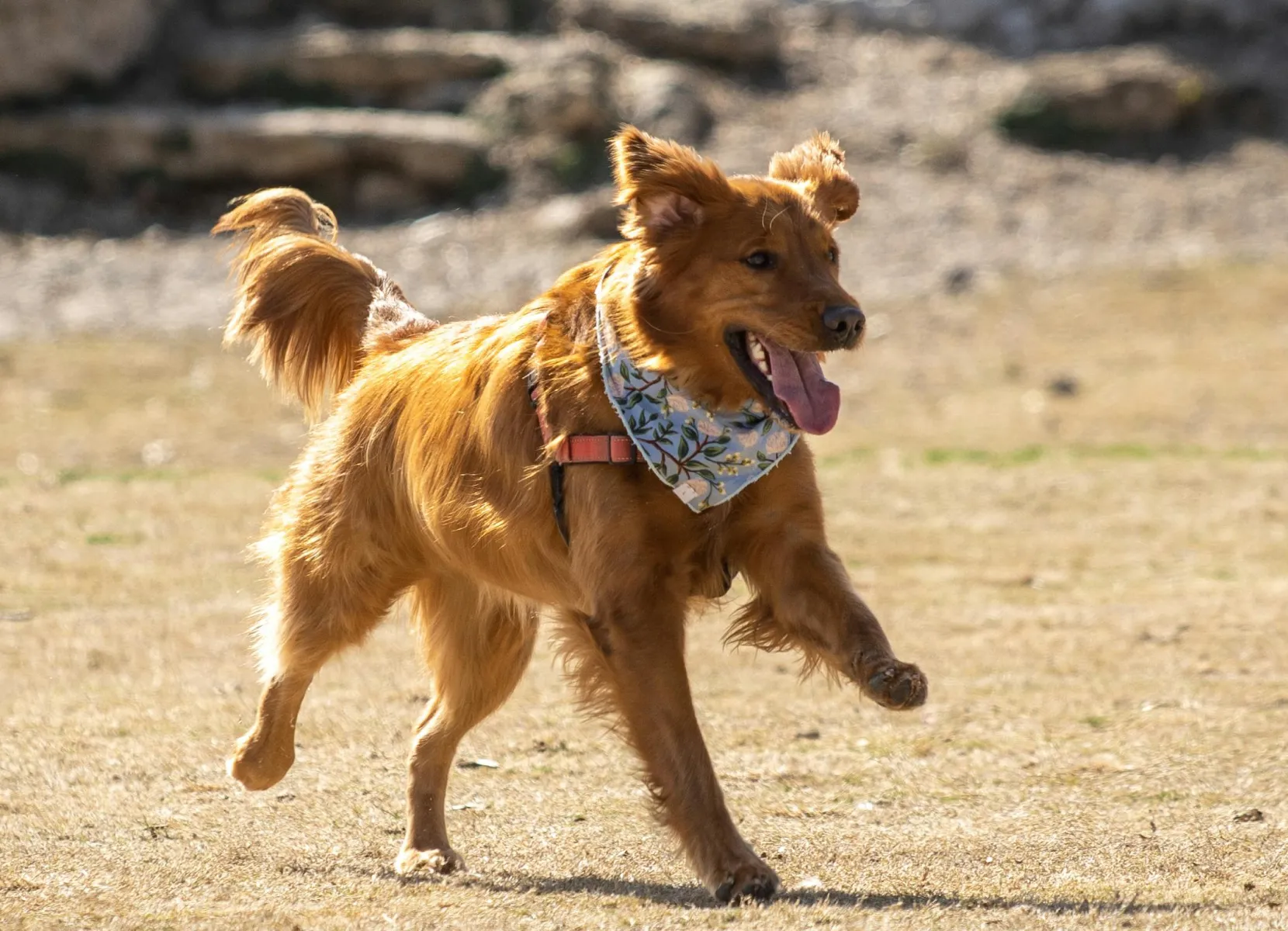Dog Breed
Golden Retriever
Friendliness
Exercise Needs
Health Issues
Barking Tendencies
Grooming Needs
Shedding Level


Golden Retrievers: Everyone's BFF
Golden Retrievers make great companions; they’re patient, loyal and are caring towards the humans in their life. Their friendly and sociable nature combined with their gentle temperament and playfulness makes them a popular choice for New Zealand families.
Just like the popular Labrador Retriever (New Zealand’s most popular breed), Golden Retrievers are hard workers and intelligent pups making them excellent guide and search-and-rescue dogs. Golden Retrievers are ‘gun dogs’, adept at assisting hunters in finding and retrieving game (most often quail and duck).
Caring for your Golden Retriever
Nutrition
Choosing the right food
Every dog is unique. From the small, flat-faced Pug to the obesity-prone Labrador Retriever. ROYAL CANIN® Breed Health Nutrition is tailor-made to address the unique needs of pure breed dogs. These breed specific formulas benefit from the latest ROYAL CANIN® research on the selection of the best protein sources, unique nutrients and tailor-made kibbles.

Exercising your dog
Adult Golden Retrievers need at least 45 minutes of exercise a day. For normal growth, Golden Retriever puppies need less strenuous exercise than adult Golden Retrievers.
This playful breed needs both physical and mental exercise to work off their boundless energy. Their name gives a clue to an easy way to do so—retrieving. Golden Retrievers also have excellent noses, so games that incorporate scenting, like “find it,” can help to burn off their puppy-for-life exuberance. Walking, running, playing fetch or training are great physical activities.
Mental stimulation can be provided through interactive dog toys, learning tricks and playing games like hide and seek. Exercises such as hiking, agility, or swimming provide both physical and mental stimulation.
Chewing is also an important behaviour that can be supported by giving your Golden Retriever safe items to chew.
With their gentle ways and gorgeous looks, it’s no wonder Golden Retrievers are a favourite with New Zealanders. These playful, energetic pups will fill your life with joy, fun and activity. Get ready for long walks or runs, games of fetch in and out of the water, and maybe even an agility class or two.

Training your Golden Retriever
Not only are they affectionate, they’re also eager to learn, so Golden Retriever training is straightforward and enjoyable. And when put to a task, whether work or play, most Golden Retrievers develop a single-minded focus to get the job done.
Like every dog, they excel when trained using treats and dog-friendly positive-reinforcement training. Because most Golden Retrievers are toy-driven, balls and toys are a great way to supplement treat training.
When it comes to training a Golden Retriever puppy, it’s important to note that some can become over-excited during the training process and might require a quick pace to stay focused. Like many dogs, Golden Retriever puppies can be mouthy, so consistent early training will help to decrease this natural tendency to nibble. Golden Retriever potty training is also straightforward, requiring typical supervision and consistency to get the job done.
Golden Retrievers are loving, smart, playful, majestic beings who make great companions and family dogs.

Your dog's health
By recognising health problems in a Golden Retriever early you can seek advice and treatment from a veterinarian.
Reduce Golden Retriever health problems by purchasing a puppy from a responsible New Zealand breeder. Always inspect breeding facilities and breeding dogs, never buy from a distant online seller.
6 health Issues to watch out for:
Joint Dysplasia, Skin Allergies and Infections, Ear Infections, Hypothyroidism and Cataracts Cancer

Grooming your dog
Golden Retrievers shed subject to the time of year. They shed small amounts year round however twice a year they "molt" and shed heavily.
To reduce shedding:
Brush your Golden Retriever regularly once or twice a week, and daily during the heavy shedding times. Using a comb or deshedding tool will be essential during molting. Bathing a Golden Retriever, unless the dog is heavily soiled, is only required once a month. Clipping a Golden Retriever is not recommended. Nails should also be trimmed regularly and teeth brushed to keep them clean.
Key characteristics of Golden Retrievers


Golden Retriever facts
If you're searching for information about Golden Retrievers, you've come to the right place. Here are the answers to commonly asked questions about Golden Retrievers, including their life expectancy, weight, and physical characteristics.
What is the life expectancy of a Golden Retriever?
A Golden Retriever typically lives between 10 to 12 years, though some may exceed this range with proper care and a healthy lifestyle.
How much does a Golden Retriever weigh?
Golden Retrievers' weight varies by gender:
- Females: 25-30 kg
- Males: 30-34 kg
On average, their weight falls between 25 to 35 kg depending on genetics and lifestyle.
What type of coat does a Golden Retriever have?
Golden Retrievers have a double coat designed for protection in various weather conditions. The coat is dense and water-repellent, with a soft undercoat for insulation.
What colours are Golden Retrievers?
Golden Retrievers come in shades ranging from light cream to reddish gold. Their coats always retain the signature "golden" hue that gives them their name.
What breed group do Golden Retrievers belong to?
Golden Retrievers are part of the Sporting Group, known for their active, friendly, and trainable nature.
Are Golden Retrievers good family pets?
Yes, Golden Retrievers are renowned for their loyal, friendly, and intelligent temperament, making them ideal for families, children, and even as service dogs.
This FAQ covers the most important facts about Golden Retrievers. If you're considering adopting one or already have a Golden, their active lifestyle, loyal temperament, and charming personality are bound to enrich your life!

